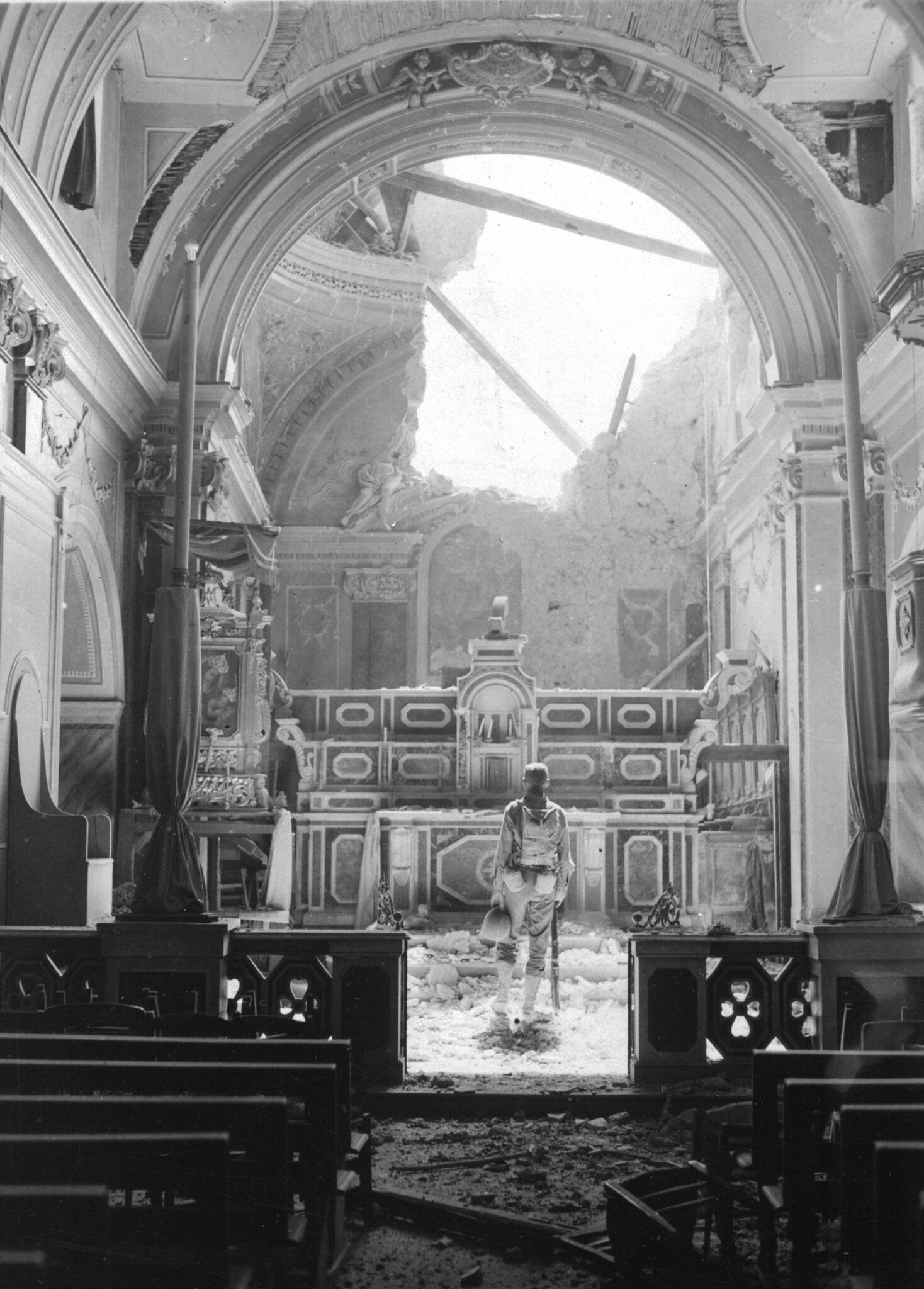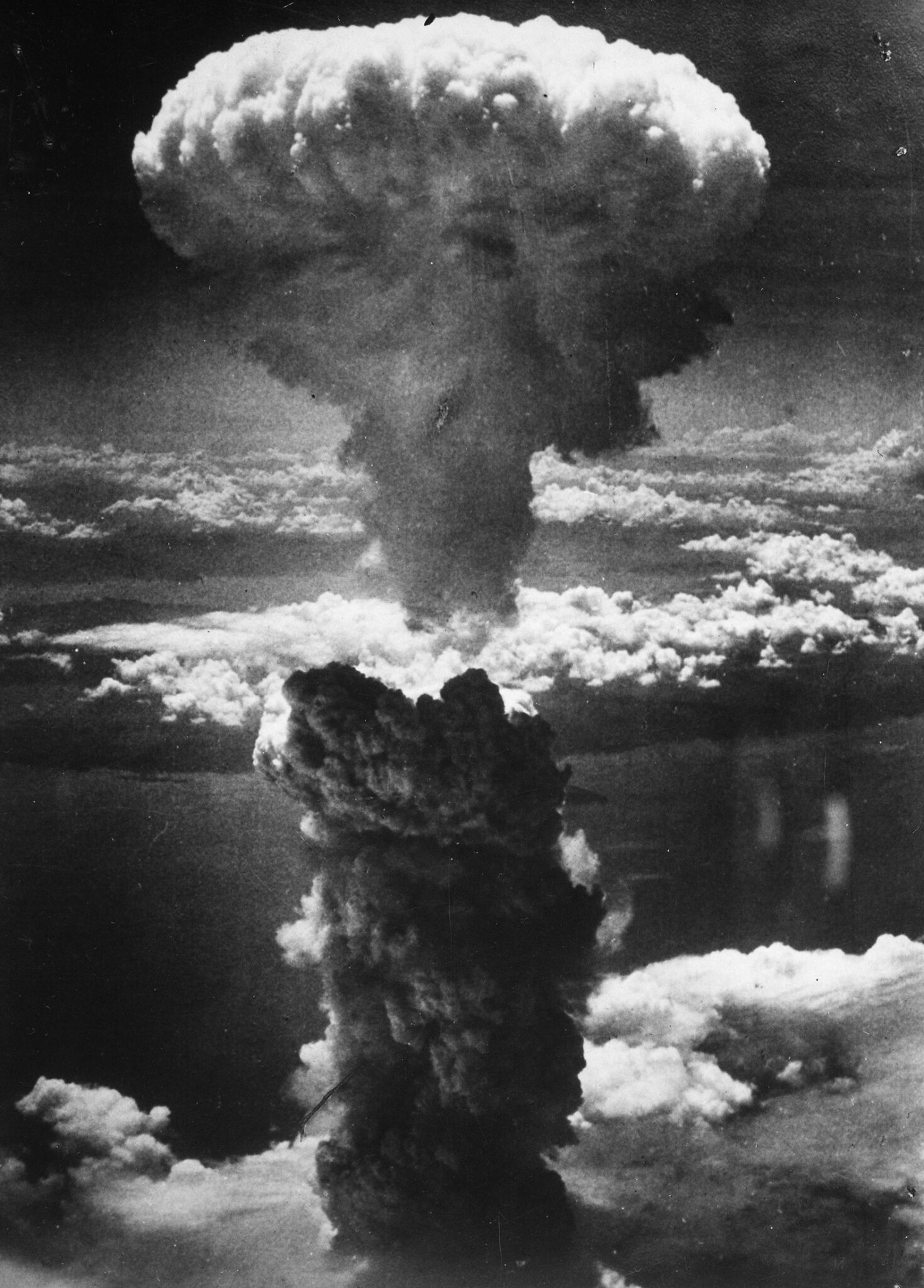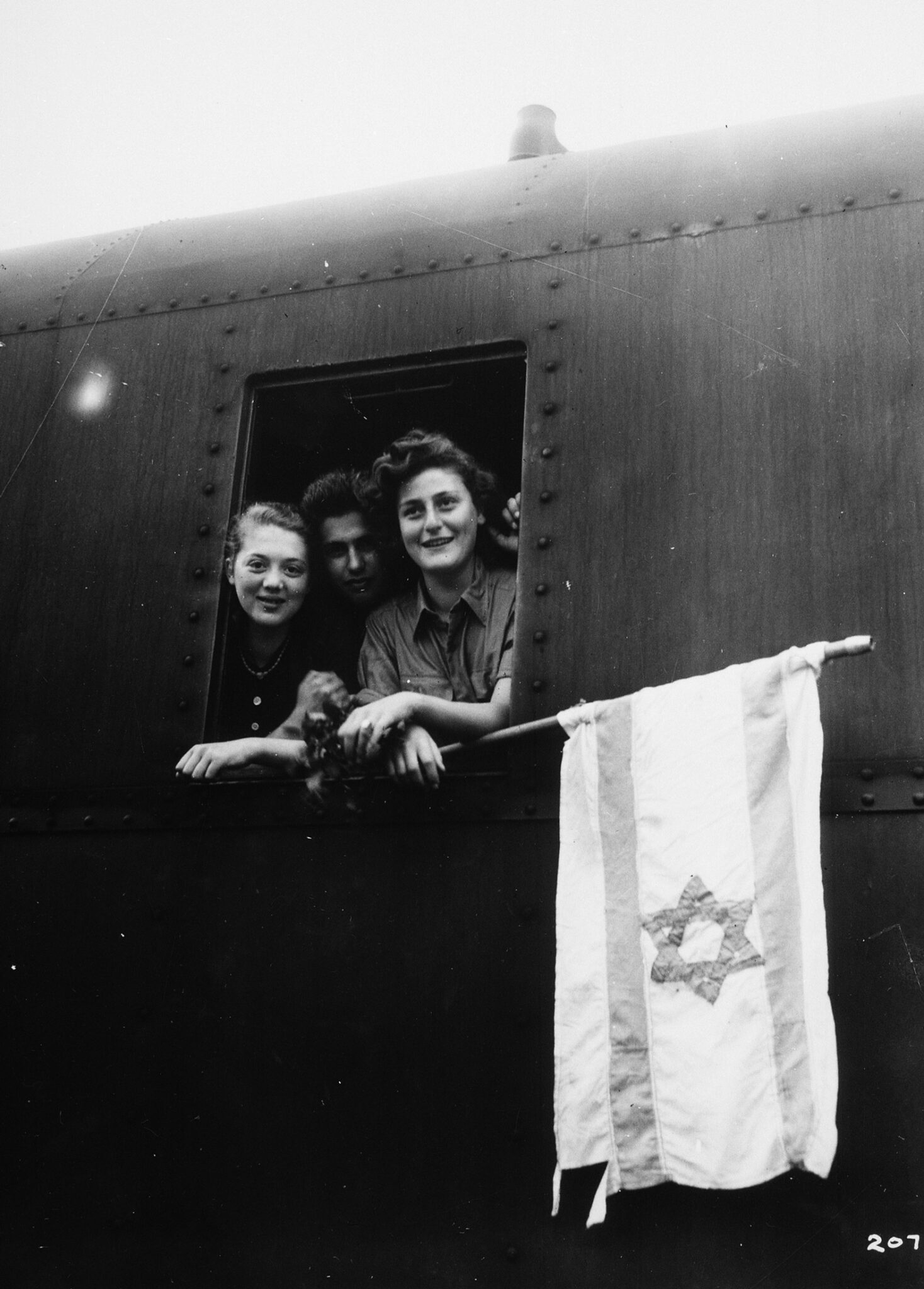Four lessons from a life spent teaching: 88-year-old history professor, Henry Weisser, reflects on why he’s still an educator
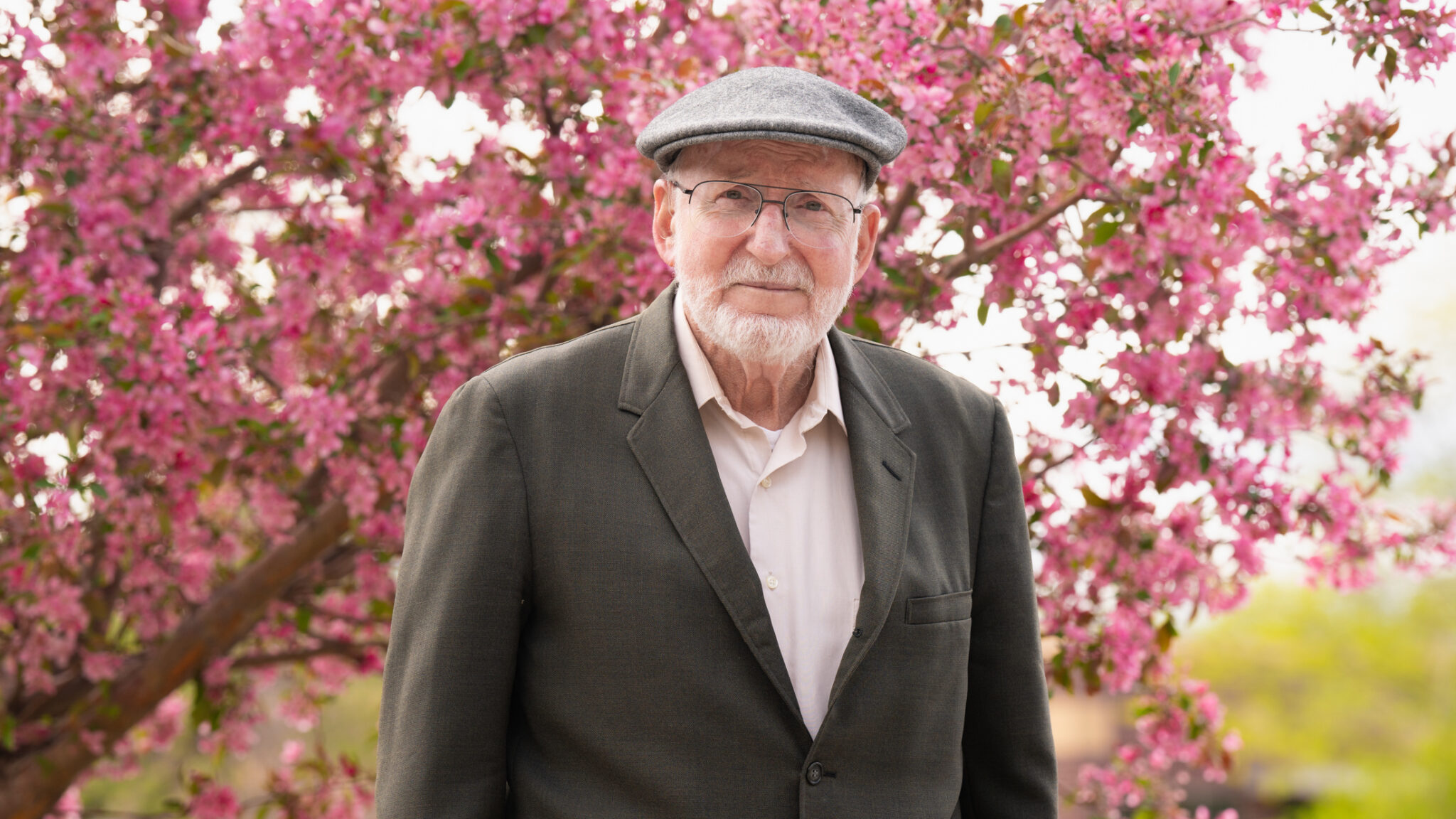
When Henry Weisser started college in the 1950s at a small liberal arts school in rural New York, no one in his family had taken their formal education beyond the eighth grade.
Captivated by history, he went on to earn a bachelor’s in the subject at Hartwick College, as well as a master’s and Ph.D. in history from Columbia University. Now, at 88, he is still teaching at the Osher Lifelong Learning Institute at Colorado State University after a nearly four-decade long career as a professor in the University’s history department.
Weisser’s educational journey had humble beginnings, as he worked throughout his time at college, first at his parents’ general store and then for several years as a janitor for the college.
“I went to Hartwick because it was close and because it was still relatively inexpensive,” said Weisser in an interview with his alma mater.
Majoring in history and developing a passion for the subject, he would find himself taking long pauses while cleaning the school’s library, setting aside his broom to get lost in books filled with captivating stories from the past.
“It was there that I was inspired by an excellent history department faculty, and this gave me the desire to become a college teacher like them,” Weisser said.
“Learning is a chance to escape all kinds of boring things, to engage your mind in different ways.”
– Henry Weisser
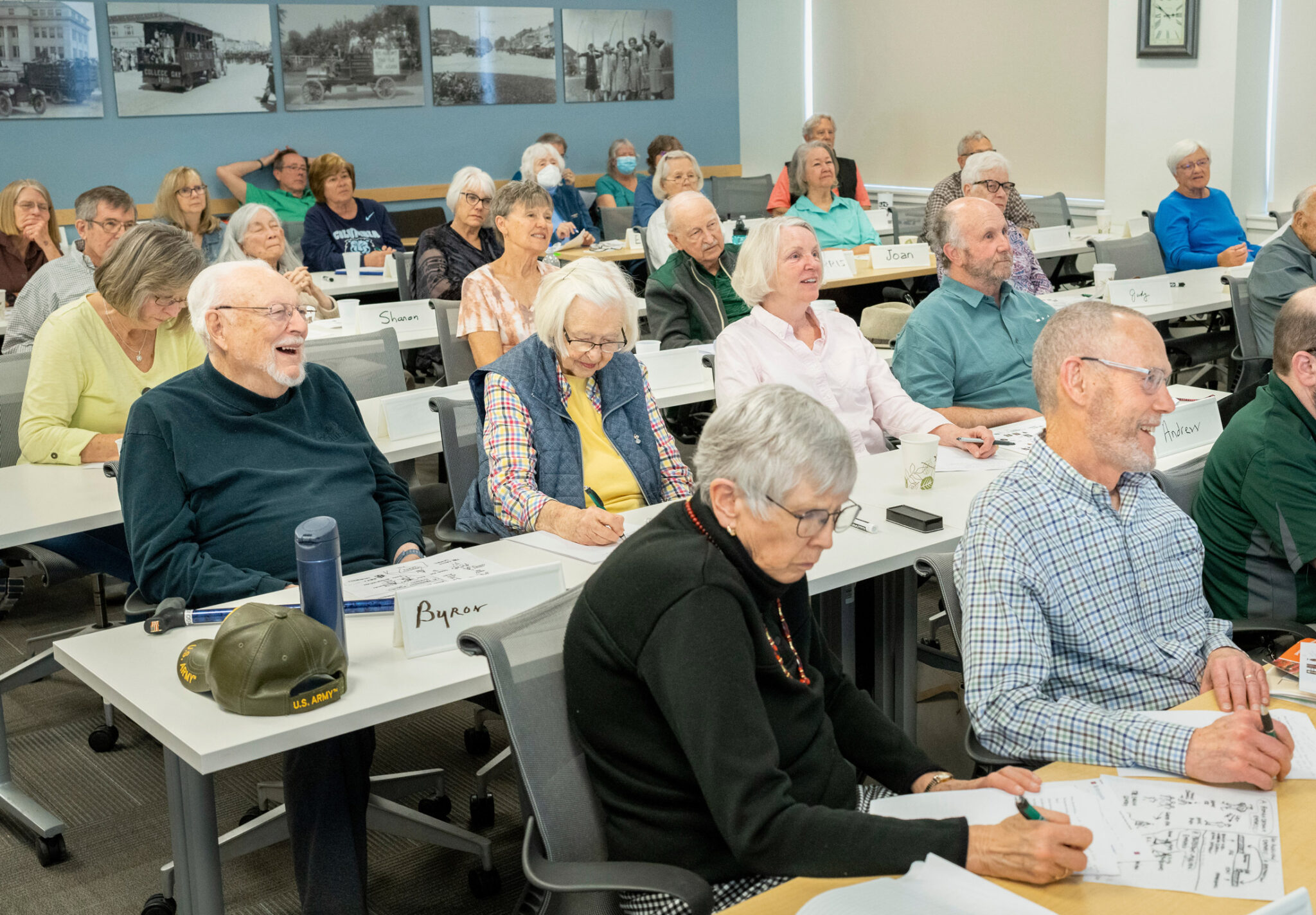
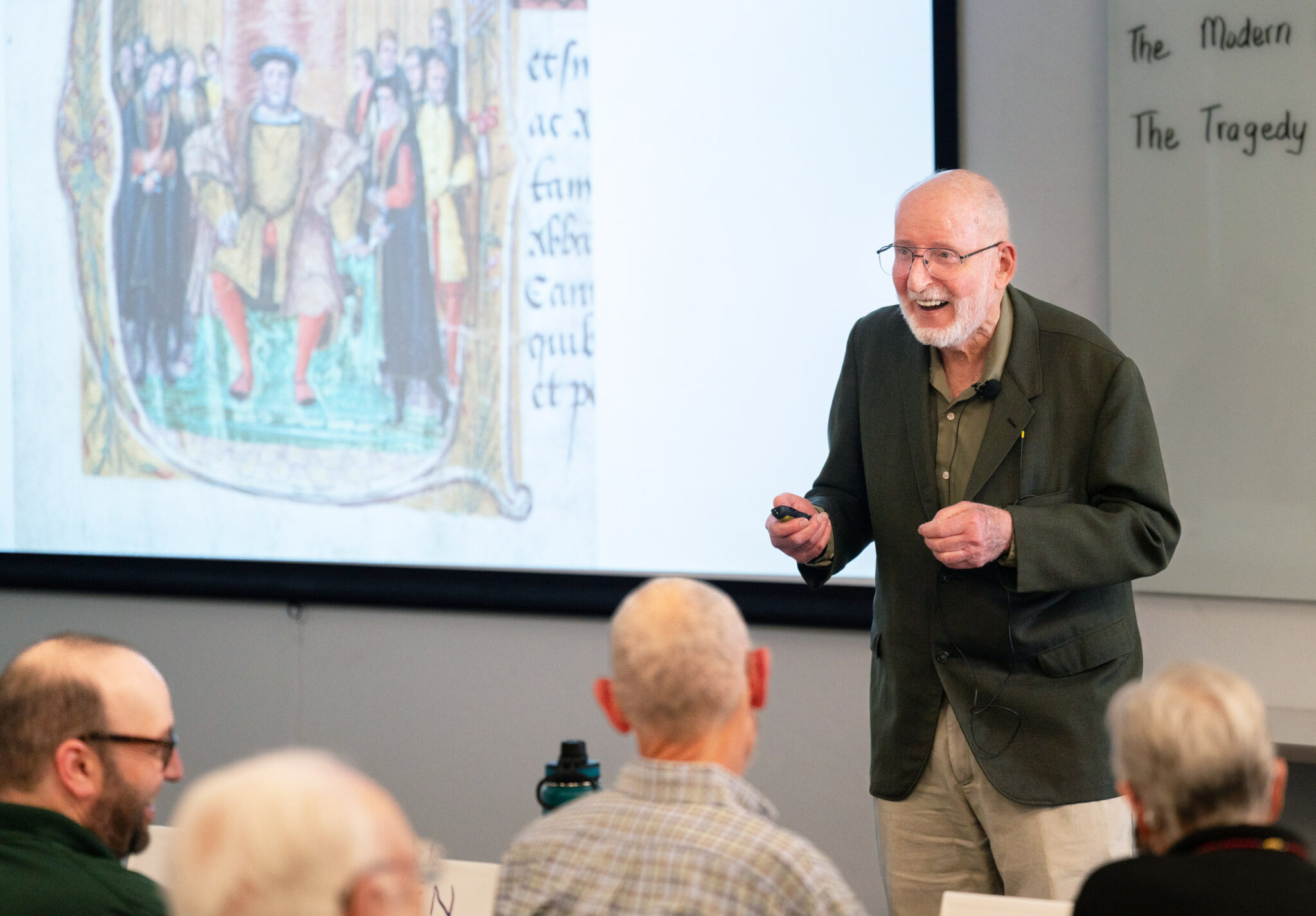
He was able to turn his curiosity into a career, teaching thousands of students during his time at CSU, while also writing nine books and over 50 articles.
“I was very busy doing history, as well as teaching history,” Weisser said.
In an in-depth interview, Weisser shared a few key lessons learned from his time as a professor and historian.
Lesson one: Curiosity is critical
“Humans are very curious animals, regardless of age,” said Weisser. “For me, it’s impossible to think about living without learning, it’s like breathing or eating.”
“Our daily routines tend to be boring, so intellectual stimulation is essential, and curiosity needs to be nurtured and encouraged,” continued Weisser. “For historians, this involves spending some time in a different era and bringing others along with us.”
“Learning is a chance to escape all kinds of boring things, to engage your mind in different ways,” Weisser said. “The more we learn, the fuller the lives we lead.”
Recent research backs up his observations, highlighting curiosity’s memory-enhancing effects and positive influence on well-being.
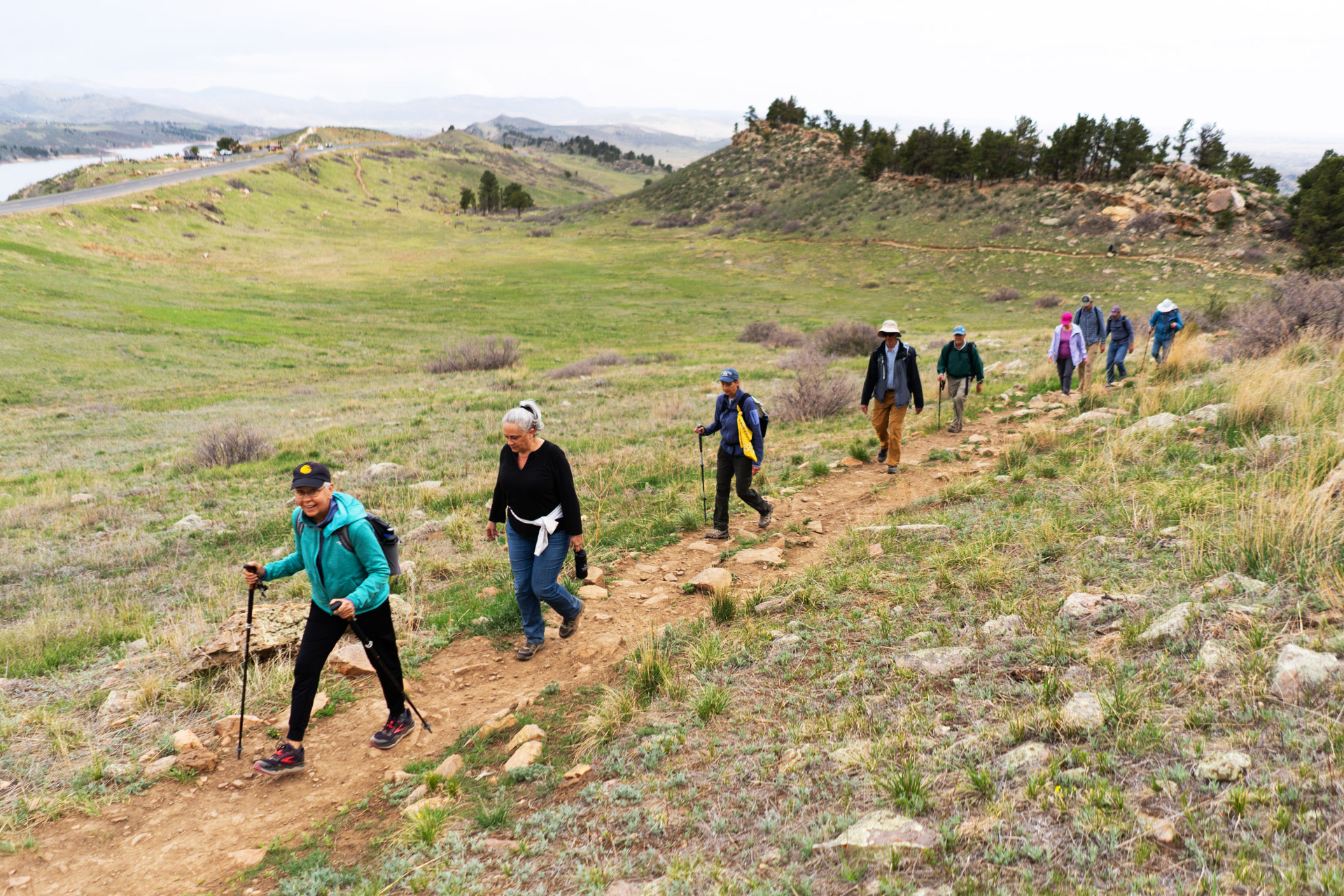
“A lot of the information doesn’t stick and isn’t supposed to. But the lessons have to be understood.”
– Henry Weisser
Weisser has seen curiosity flourishing in his older learners, who pepper him with questions in his classes spanning British history and diving into the lives of towering historical figures like Winston Churchill, Ulysses S. Grant and Robert E. Lee.
“The participants are here because they want to be here,” he said.
A natural storyteller in the classroom, Weisser shares facts about historical events and cultures that serve as a framework to explain the lessons that history contains.
“Teaching isn’t about memorization. A lot of the information doesn’t stick and isn’t supposed to,” he continued. “But the lessons have to be understood.”
The enthusiasm for history, and thoughtful approach to teaching, that Weisser demonstrated in his classroom for decades not only captivated his students, but for many of them, changed their lives and the way they viewed the world around them.
“Henry was one of those professors whose passion for history showed through every day,” said David Danbom, one of a handful of Weisser’s students from CSU who not only went on to careers as educators, but have also joined the faculty at CSU’s Osher Lifelong Learning Institute.
“It was my exposure to teachers like Henry that led me to embrace a career as a college teacher,” continued Danbom, echoing how Weisser was drawn into the profession. “Through my teaching career, which continues these days at OLLI, I have endeavored to have the same enthusiasm for the discipline that Henry had – and has.”
Lesson two: Looking at our history helps explain what it means to be human
“Students of history understand the range of human behavior,” said Weisser. “They learn about tragedy and soaring success.”
A stark example is World War II, which Weisser has been teaching about for decades.
The 2,194 days it took to end WWII were the most violent in human history, with an estimated 25 million soldiers killed in the fighting, along with 30 million civilians, even more of whom died from famines and disease resulting from the conflict.
The complex conflict, which reshaped how the world viewed human rights and introduced a generation to the once unimaginable devastation of nuclear weapons, highlights a critical concept that Weisser has been teaching throughout his career:
“The best of humanity and worst of humanity are often interwoven.”
– Henry Weisser
“We can learn about life from both the great and the terrible moments of human history, as well as from the lives of great and terrible individuals of history,” Weisser said.
“If you are too selective in your view of history it leads toward biases and incomplete stories. As historians, we seek to present a complete accounting of the various sides of complex issues,” he continued.
“For instance, the general public is now informed of oppression in the British empire, they’re informed of oppression in American history,” said Weisser. “But, the picture is larger than that.”
“There were bad people involved, and there were good people involved. But, it’s not always about morality, it’s about what happened,” explained Weisser.
Lesson three: ‘Every day is unique’
“As Mark Twain famously put it, ‘History doesn’t repeat itself, but it rhymes,’” Weisser said.
“Every day is unique, people are complex, and eras develop in unexpected directions,” he continued. “We can’t predict the future because of history, but we can develop a sense of the strengths and weaknesses of human beings in facing the challenges of the future.”
“Historians often find similarities between personalities and events past and present, but their insights are also invaluable in pointing out the unique, seemingly unprecedented events,” Weisser added.
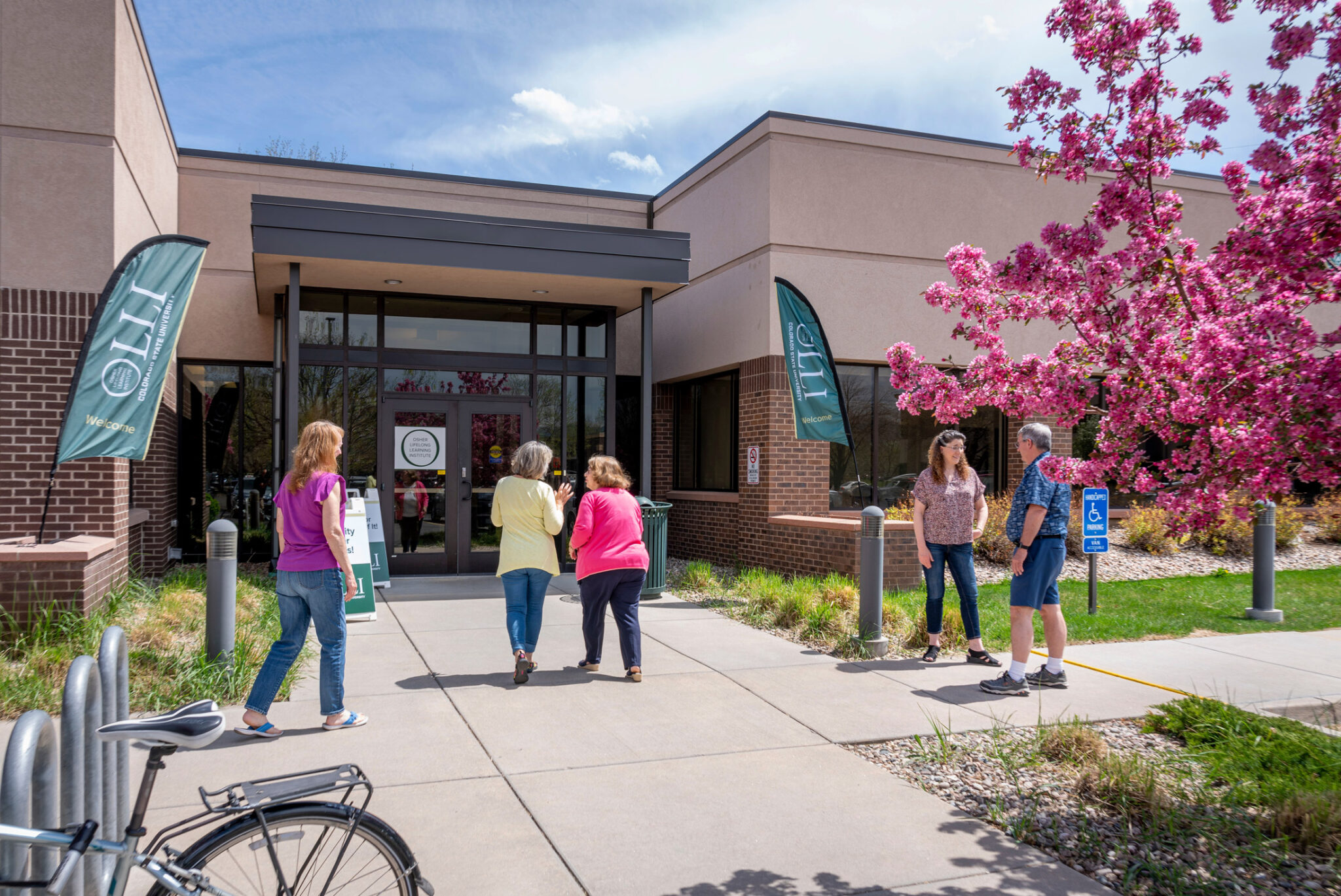
“It’s just been an outstanding experience. I don’t want to miss a class because I might miss an opportunity.”
– John Blair, OLLI student
Lesson four: It’s never too late to find your dream job
“I was aging and retired from teaching at CSU when I stumbled into what was something of a teaching dream,” Weisser said. “Classes to teach with no tests to give and no grades to analyze or possibly haggle over, filled with people who wanted to be there to learn.”
This environment, at the Osher Lifelong Learning Institute, was new to Weisser when he joined the diverse set of educators catering their lessons to the interests of older adults.
“With classes made of mostly retired people, they’ve brought all sorts of life experiences to the classroom, helping enrich experience for everyone,” continued Weisser.
“Tuition is low and the social interactions are rewarding,” he said, echoing comments from students in the program. “What a great place to conclude my career!”
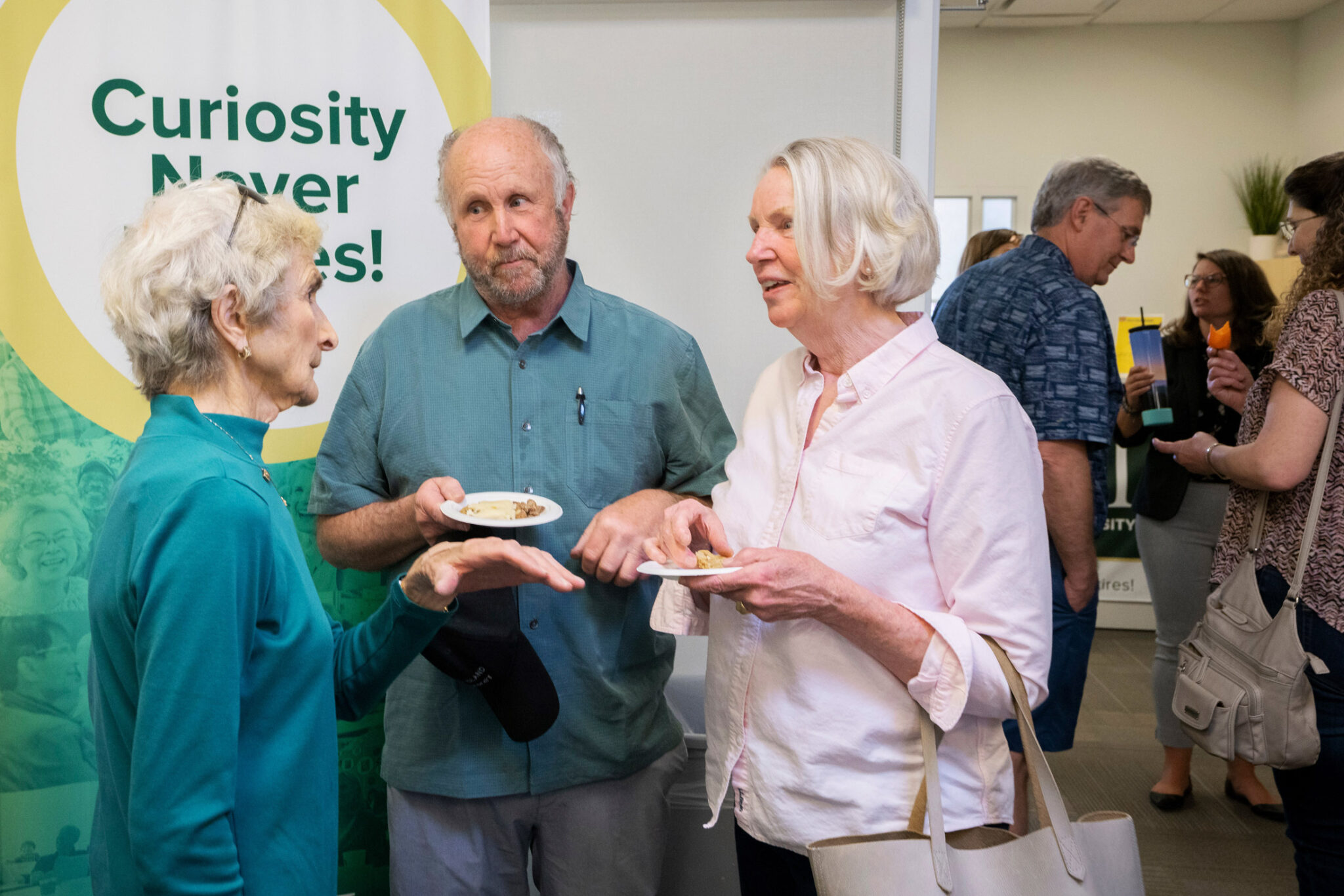
“[My classmates and instructors] are my extended family in a way.”
– John Blair, OLLI student
The last class
As for when Weisser will deliver his final lesson? Naturally, he looks to history to explain.
“Continuing teaching is something I’m proud of, that I can do it at this age, and I like the people in my classes, which is important. But when I start slipping, and when I realize that I’m not doing this as well as I used to, I would retire then,” he explained.
“Mohammed Ali had too many fights, Elvis gave too many concerts, I’m going to have that realization at some point, but that hasn’t happened yet,” concluded Weisser.
The Osher Lifelong Learning Institute at CSU
OLLI at CSU is a member-based, member-driven learning community for curious minds of all ages with special attention to those ages 50 and better. Courses are offered in-person and online, with hands-on classes spanning topics like art, geology, literature, health and wellness, music, and more.
With your paid $25 membership fee each term, you will be eligible to register for as many OLLI classes, lectures, and special programs as you would like. Additional individual course fees may apply. Paid memberships also provide you with the opportunity to enjoy several complimentary lectures, national virtual tours, and participation in social activities.
